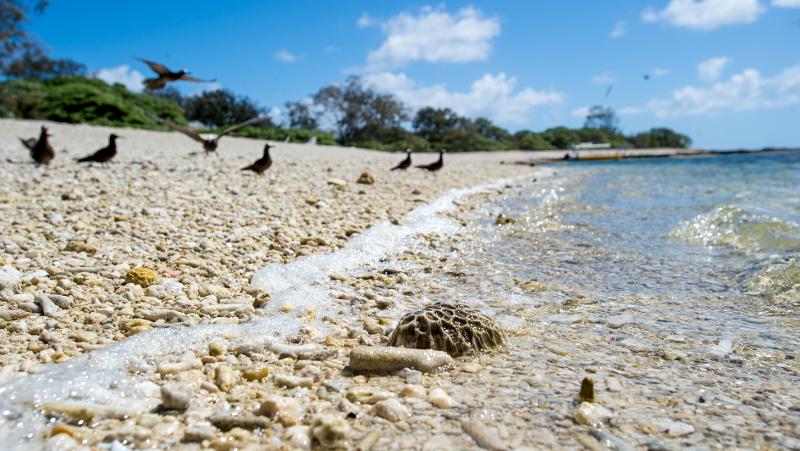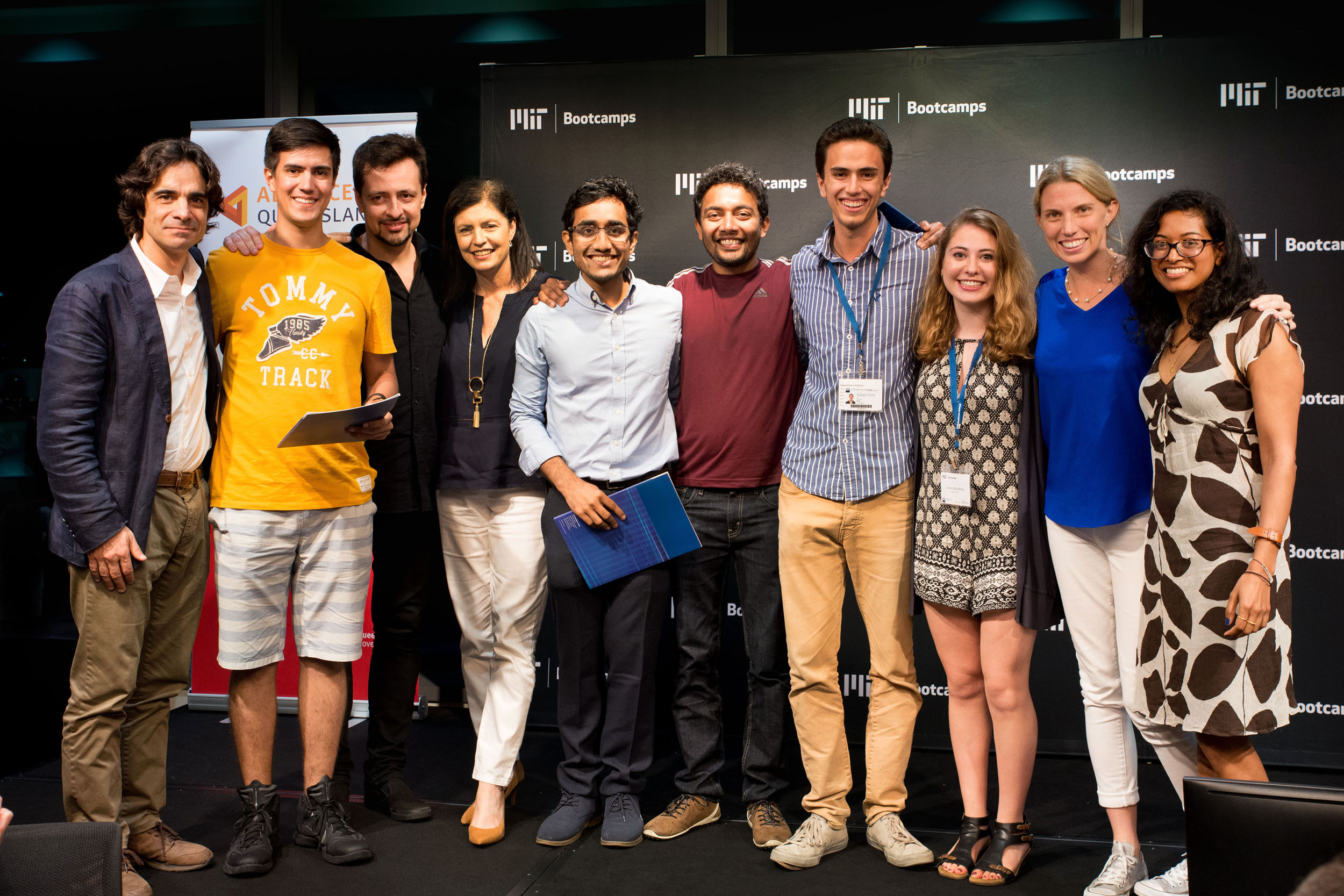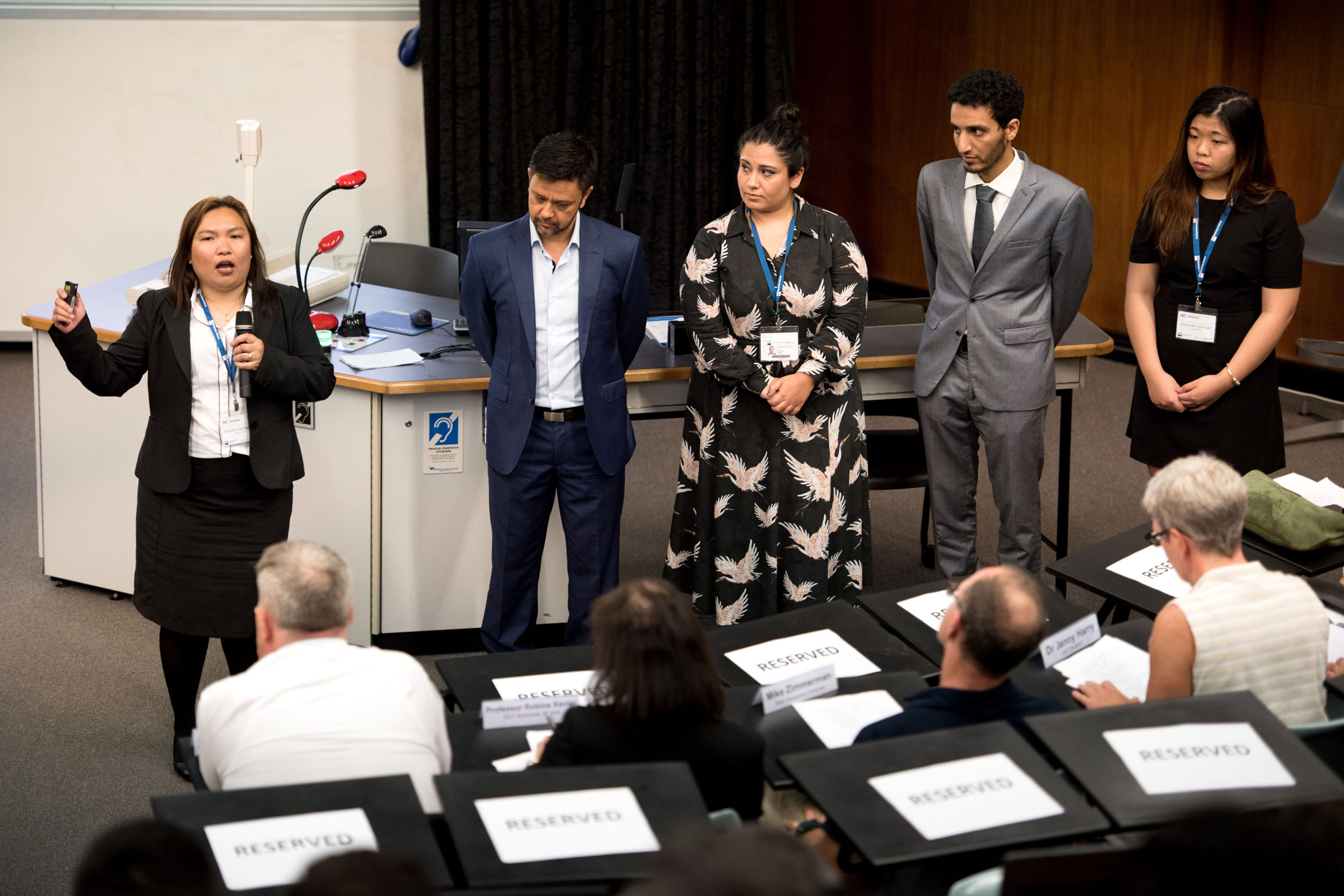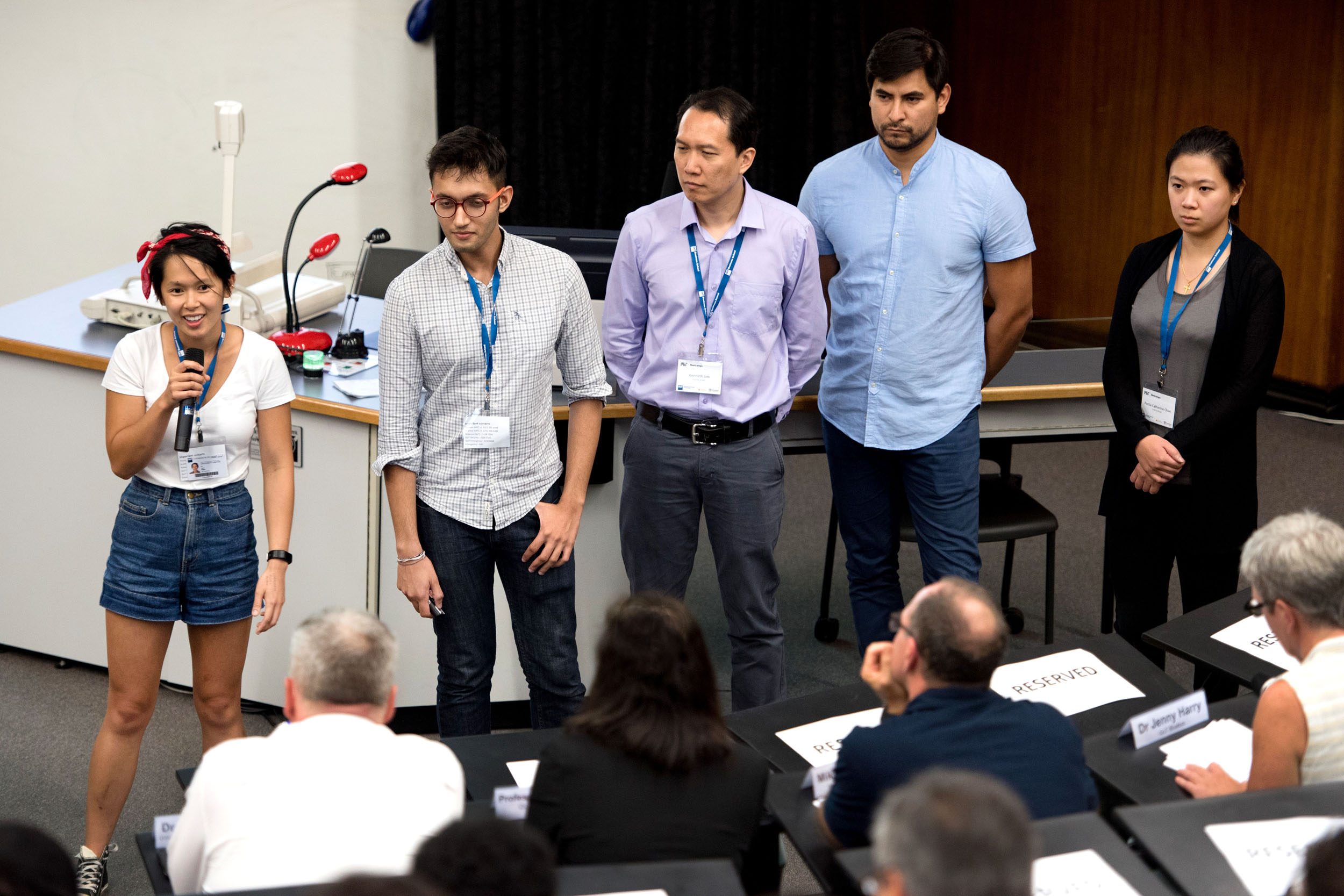
Reducing waste, improving energy efficiency and sustainability were among the pressing environmental and social problems MIT Bootcamp participants worked to solve at this year’s week-long event at QUT.
The MIT Innovation and Entrepreneurship Bootcamp – Future of Sustainability was held at Gardens Point campus in February in partnership with Advance Queensland.
Up to 130 people from 39 countries formed teams, identified a problem and built a start-up business to solve it.
MIT Professor Bill Aulet led the teaching of “disciplined entrepreneurship” and decorated retired Navy SEAL Jocko Willink came as a special motivational coach to inspire bootcamp participants to lead.
Teams worked around the clock to pitch their plans in a final session that came down to a group of finalists, including joint winners, third place and a special QUT Business School recognition award for innovation.
Solar Coat, once operational, is a 3D nano technology that can be retrofitted to already installed solar panels to push the panels to optimal efficiency.

Team member Balendu Avvaru, who is based at BioMed X Innovation centre in Germany, said by layering 3D dimensional arrays of metal nanoparticles and quantum dots on existing silicon based solar cells energy efficiency can be increased by at least five percent.

“We project that current solar farm owners will be able to generate an additional revenue of $400,000 per hectare per year,” he said.
QUT’s Professor Rowena Barrett, Head of School of Management, said the Solar Coat team was selected for a special award by the Business School for its innovation at the heart of the venture.
“The team clearly articulated the problem they sought to solve and the elements to the solution they developed,” Professor Barrett said.

“This is an innovative piece of technology which has significant benefits for the solar power industry as well as consumers,” Professor Barrett said.
MIT’s judges’, made up of senior board members and Brisbane investors, selected dual winners - CareMate, a dementia-based care platform for carers - and HomeGrow, a-grow-your-own gardening system attuned to individual backyard conditions.

Both application systems are designed to be used on mobile devices.
HomeGrow team member Cara McDonald said people fail to grow vegetables at home due to a lack of knowledge about what, when and specific environmental conditions for each crop.
I’ve had the most incredible and intense learning experience at MIT Innovation & Entrepreneurship Global bootcamp over the past 6 days. Thank you to all involved! @QUTBusiness @MITBootcamps @BillAulet @jockowillink pic.twitter.com/aMlXNZVgv9
— Cara McDonald (@caraaspel) February 17, 2018
She said the team’s solution involved a personalised interactive educational app that’s linked to weather data and artificial intelligence smart-sensors to guide growers.
“It’s better to define the exact problem you are trying to solve rather than jump into building a piece of technology that no one is willing to pay for,” she said as she reflected on her Bootcamp learning experience.
Third-placed team, StartGood, was another application platform designed to improve and increase access for youth volunteering in third world countries.

Since the MIT Bootcamp program began in 2014 and there have been 500 participants from 70 countries. Collectively, they have launched 100 new ventures, raising over US$51 million. Six have been selected for Forbes 30 under 30.
It’s the second year in a row MIT has choosen QUT to host its internationally-renowned Bootcamp.
The Bootcamp will return in 2019 and applications will be open mid-2018.
Media contacts:
Debra Nowland, QUT Media, 07 3138 1150 (Mon/Wed/Thurs) or media@qut.edu.au
After hours: Rose Trapnell, 0407 585 901


